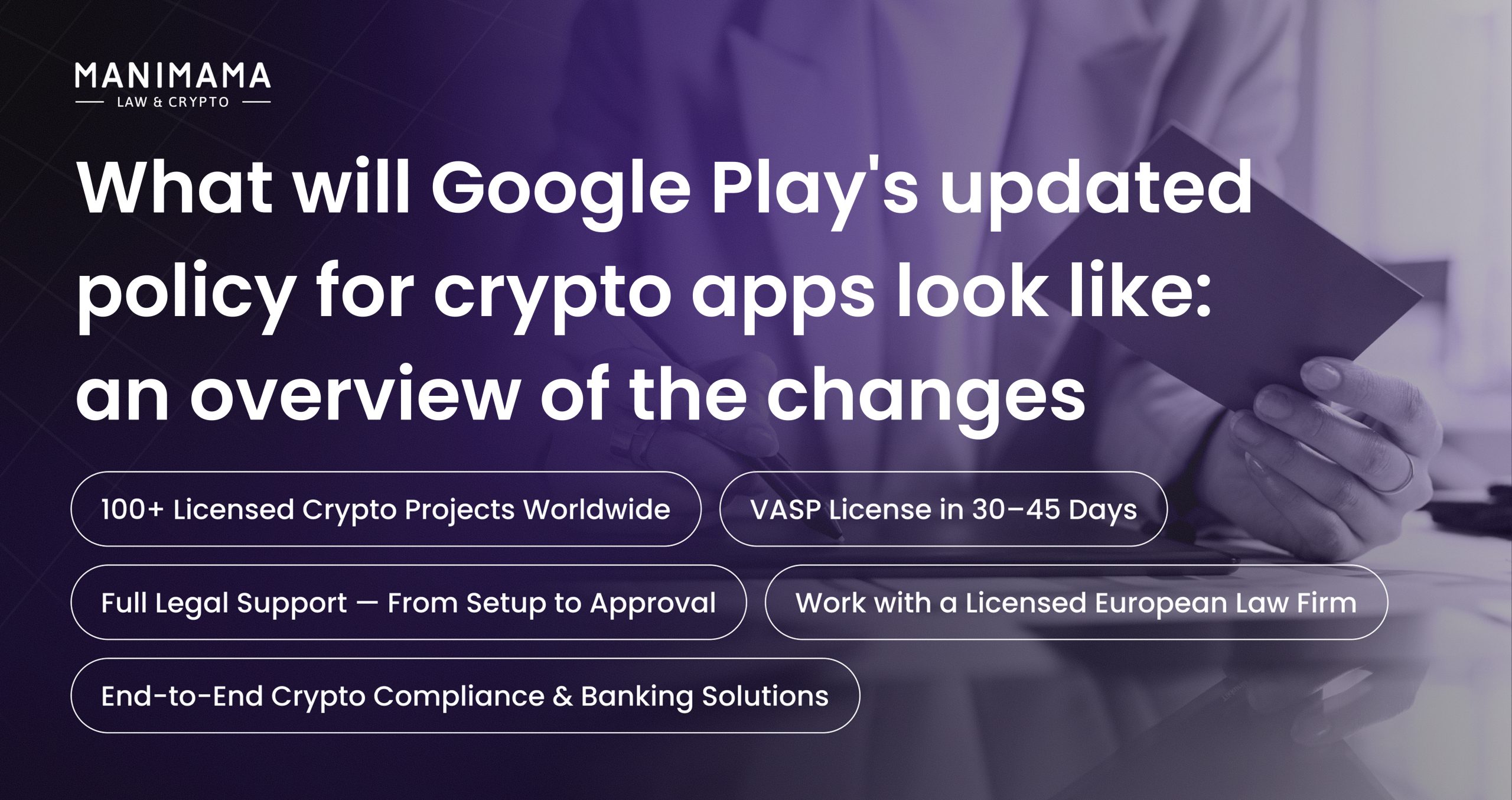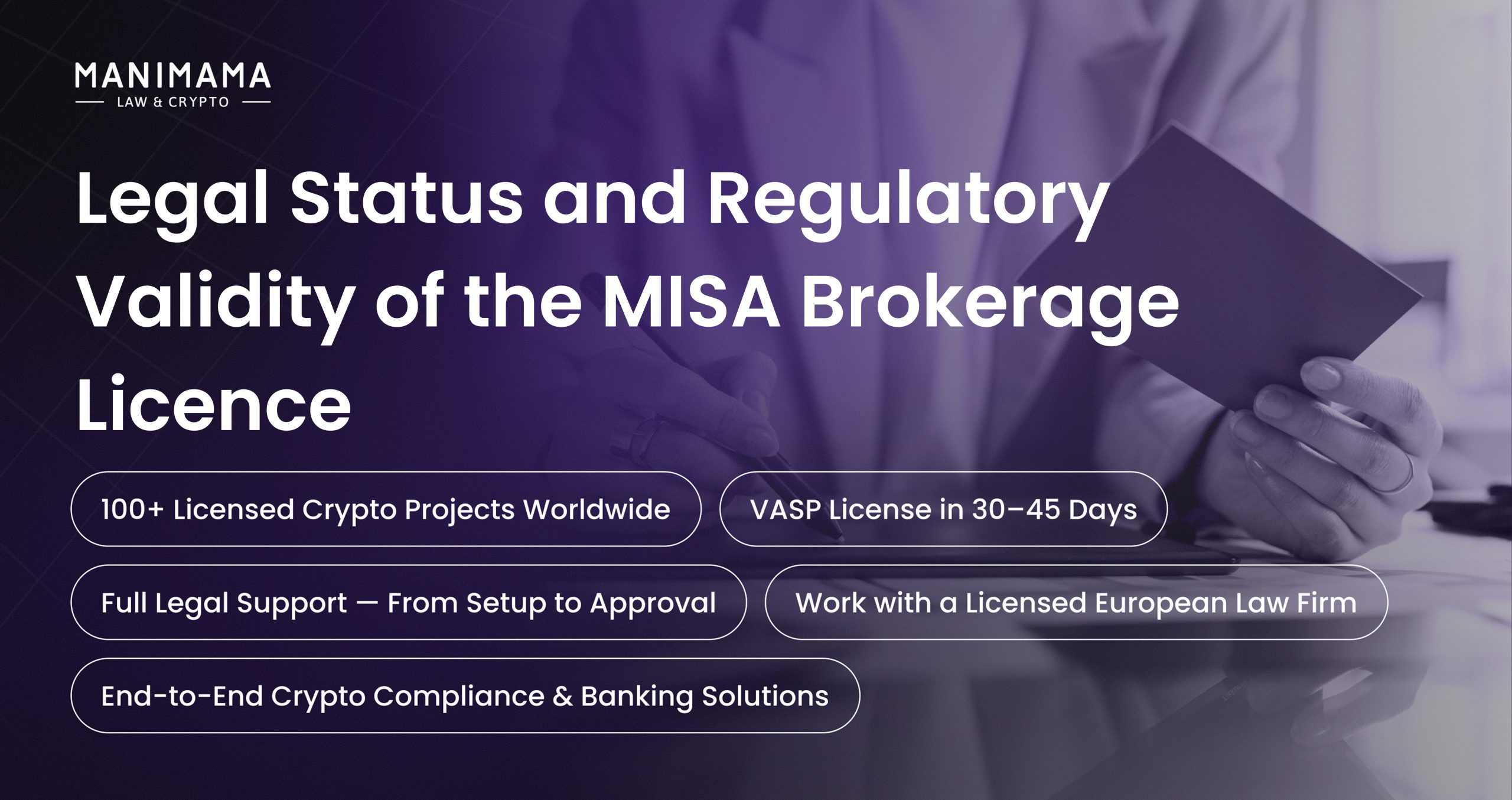Global regulations on digital assets are tightening. Previously, developers could release cryptocurrency exchange and wallet apps on Google Play with minimal oversight. This is changing. New rules from Google will take effect in summer 2025, directly affecting cryptocurrency app developers.
These rules introduce licensing, jurisdictional controls, and compliance procedures that reflect a global trend: the crypto industry is becoming part of the regulated financial system.
Key Updates in Google Play’s Cryptocurrency Policy
Starting October 29, 2025, the revised Google Play policy on cryptocurrency mining apps and crypto-service rules will take effect. Developers planning to launch any crypto app for Android must meet these new obligations to keep their applications available in the market.
Core obligations
- Clearly indicate in the Financial Functions Declaration that the app supports a cryptocurrency exchange or software wallet.
- If your app is distributed in a regulated jurisdiction, fill out the specific form for that region as required by Google.
- Obtain all necessary cryptocurrency exchange license approvals or equivalent local permits.
The obligation to obtain a license and complete the extra form applies to apps available in any of the following 15 jurisdictions: Bahrain, Canada, Hong Kong, Indonesia, Israel, Japan, Philippines, South Africa, South Korea, Switzerland, Thailand, United Arab Emirates, United Kingdom, and all member states of the European Union.
These requirements will substantially reshape the operating environment for services such as Google Wallet Crypto, Google Coin initiatives, and other Google crypto products across the impacted regions.
MiCA Regulation and the European Union
The European Union has implemented one of the most significant crypto regulatory frameworks to date: Regulation 2023/1114 on Markets in Crypto-Assets (MiCA).
Under the revised Google Play requirements, any developer aiming to release a crypto application in the EU must now secure a Crypto-Asset Service Provider (CASP) license in line with MiCA, as a national VASP registration is no longer enough. Transition periods are available for two countries:
- France – until June 30, 2026, developers may continue using national DASP registration with the AMF.
- Germany – until December 30, 2025, developers may rely on the BaFin license. Apart from these exceptions, distribution within the European Union will require full Crypto-Asset Service Provider (CASP) authorization. For projects such as a Google crypto wallet, early preparation is critical because the licensing process is lengthy and requires strict adherence to capital, anti-money laundering (AML), and operational standards.
Different Rules in Other Jurisdictions
While the EU moves toward a single CASP regime, other regions apply a mix of registrations and licenses:
- United Kingdom, Canada, Japan – registration with the local financial authority is generally sufficient.
- Philippines, Israel, Thailand, Indonesia – developers must obtain a local exchange or wallet license.
- The United States operates a two-level system, requiring federal Money Services Business (MSB) registration and state-level money-transmitter licenses.
Due to the diversity of regulatory requirements, developers of cryptocurrency wallet or exchange applications must develop a comprehensive, jurisdiction-specific compliance strategy prior to launching their applications.
Which Apps Are Affected
Two main categories fall under the new Google Play rules:
- Cryptocurrency exchanges – platforms where users can purchase, sell, or trade various crypto assets.
- Software wallets – apps that enable users to store and manage cryptocurrencies.
Initially, the policy created confusion about whether non-custodial wallets were included. Google later clarified that non-custodial wallets—apps where users control their own private keys—are excluded from the licensing requirements.
A standard non-custodial wallet or decentralized cryptocurrency wallet can stay available on Google Play without obtaining a CASP license as long as it does not hold user funds in custody.
Practical Steps for Developers
To remain compliant and avoid removal from Google Play, developers should:
- Check jurisdictional coverage – confirm whether the app is or will be available in any of the 15 regulated regions.
- Plan licensing early – securing a cryptocurrency exchange license or CASP approval may take months.
- Prepare documentation – including a legal opinion that can be presented to Google, banks, and regulators.
- Monitor updates – Google is expected to release clarifications for initiatives such as a new Google crypto wallet; adherence to these steps is mandatory. Failure to comply may result in the suspension or rejection of your application. or rejection of the application.
Strategic Options
Developers of crypto apps face three primary strategic paths:
- Full compliance – obtain the necessary CASP or equivalent licenses and maintain operations within all regulated markets.
- Shift to non-custodial – redesign the product as a non-custodial wallet, eliminating the need for complex licensing.
- Alternative distribution – exit Google Play and release the application via third-party Android marketplaces or direct web platforms.
Choosing between these strategic options requires a careful assessment of business goals, technical infrastructure, and the resources needed to maintain long-term regulatory compliance.
The Role of Legal Advisors
Considering the complexity of the Markets in Crypto-Assets (MiCA) framework and the diverse national regulations, collaborating with legal experts becomes crucial.
Dedicated firms can assist by:
- Evaluating the application’s business model to determine if it falls under a Google crypto service that needs licensing.
- Preparing a detailed legal opinion for submission to Google Play and relevant regulators.
- Managing interactions with financial institutions and government authorities.
For developers introducing cryptocurrency applications for Android, expert legal guidance mitigates the risk of application rejection and expedites the approval process.
Implications for Google and the Crypto Market
With the introduction of these new requirements, Google makes it clear that the Play Store is no longer a neutral space for crypto services.
The joint impact of MiCA in Europe and local licensing rules in other regions effectively turns Google Play into a regulated marketplace for digital financial products.
This shift has broader implications:
- Users will gain more protection and transparency when using a Google crypto wallet or similar app.
- Developers must invest in compliance infrastructure, which raises the entry barrier but potentially increases consumer trust.
- Regulators see an opportunity to integrate crypto services into mainstream financial oversight.
Preparing for the Future
With the October 29, 2025, deadline approaching, developers of Google Wallet Crypto, Google Coin projects, and other cryptocurrency services must initiate compliance measures immediately.
- Conduct a gap analysis of current operations versus new Google Play requirements.
- Begin the CASP or local licensing procedure immediately if you intend to operate in the EU or other regulated jurisdictions.
- Consider architectural changes that enable the product to function as a non-custodial wallet, thereby eliminating the need for licensing altogether.
Timely compliance is crucial for a successful launch and maintaining ongoing availability in the Google Play Store.
Conclusion: Regulation Meets Innovation
The new Google Play rules illustrate a decisive global trend: technology must coexist with financial regulation.
For developers, the regulatory requirements are unequivocal. Regardless of whether an entity operates a large-scale exchange or a basic Google crypto wallet, compliance is now mandatory.
Those who obtain a cryptocurrency exchange license, design a compliant cryptocurrency wallet, or pivot to non-custodial wallets will be best positioned to thrive in the next phase of the market.
Those who delay risk removal from the Play Store and loss of access to millions of Android users.
In this new environment, success belongs to the teams that combine technical innovation with regulatory foresight.
The content of this article is intended to provide a general guide to the subject matter, not to be considered as a legal consultation.











